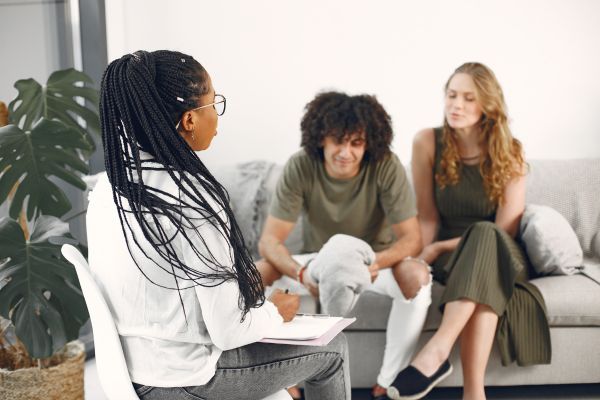Ever felt like your relationship is a delicate dance, where sometimes you’re in sync and sometimes, well, stepping on each other’s toes? Couples therapy can be the tune-up that helps you both find the rhythm again. Couples therapy, often referred to as marriage counseling, aims to help partners resolve conflicts, improve communication, and strengthen their relationship. It’s like taking your car for a service; sometimes, even good relationships need a little maintenance.
Couples Therapy What To Expect
Couples therapy, also known as couples counseling or marriage counseling, is a form of therapy designed to help couples improve their communication, resolve conflicts, and strengthen their relationship. Here’s what you can generally expect from couples therapy:
1. Initial Assessment
The first session typically involves the therapist getting to know you and your partner, understanding the issues you’re facing, and assessing the dynamics of your relationship. This is also an opportunity for you to ask any questions you might have about the therapy process.
2. Goal Setting
The therapist will work with you and your partner to identify specific goals for the therapy. These goals could be related to improving communication, resolving conflicts, rebuilding trust, or other areas of concern.
3. Open Communication
During sessions, the therapist will facilitate open and honest communication between you and your partner. They’ll help you express your thoughts and feelings in a constructive and respectful manner.
4. Conflict Resolution
Therapists often teach conflict resolution skills, helping you both learn how to manage disagreements and conflicts in healthier ways. This can involve techniques like active listening, compromise, and finding win-win solutions.
5. Identifying Patterns
Therapists may help you identify negative patterns or cycles that contribute to relationship difficulties. By recognizing these patterns, you can work together to break them and develop healthier interactions.
6. Improving Communication
Effective communication is a cornerstone of a healthy relationship. Couples therapy can help you learn better ways to express yourselves, actively listen, and understand each other’s perspectives.
Why Couples Opt For Therapy
1. Common reasons
From infidelity and financial disagreements to issues surrounding intimacy or simply growing apart – the reasons for seeking therapy are vast. Even the most picturesque relationships have underlying issues. Admitting you need help? That’s strength, not weakness.
2. Misconceptions
Many believe couples therapy is the last resort before a breakup. However, it can be a proactive approach to better understand one another or to navigate significant changes in a relationship.
Common Therapeutic Techniques
1. Communication training
Remember the last time you said, “That’s not what I meant!”? This technique helps ensure that’s a thing of the past.
2. Emotional Focused Therapy
Here, couples learn to recognize and address the emotional cycles they get caught in. Imagine breaking free from a recurring bad dream.
3. Conflict resolution
Agreeing to disagree in a healthy way? That’s the gold standard.
Benefits of Couples Therapy
From rekindling intimacy to improving communication, the benefits are manifold. Plus, it’s not just about fixing what’s broken but also strengthening what’s already good.
What Not to Expect
A magic wand? Sorry, therapy isn’t about immediate fixes but gradual improvements. And remember, both partners need to be invested for the best results.
Conclusion
Like a garden, relationships require nurturing. Couples therapy is one of the tools you can use to ensure your relationship blooms and thrives. Whether you’re facing challenges or just looking to grow closer, knowing what to expect can make the journey smoother.
FAQs
1. Is couples therapy only for married couples? No, it’s for any couple, whether dating, living together, or married.
2. Does needing therapy mean our relationship is failing? Not at all! It means you’re proactive about nurturing your relationship.
3. What if only one of us wants to go for therapy It’s always better if both partners attend. However, individual sessions can also benefit the relationship.
4. How long does therapy usually last? It varies. Some couples need a few sessions, others might need months. It depends on the issues and the goals set
5. Is everything we discuss confidential? Yes, therapists are bound by confidentiality, so your sessions remain private.








